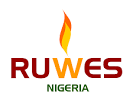In 2021, RUWES entered into a discussion to distribute up to one million Improved Cookstoves and one million water filtration systems across 6 states in Nigeria. As a prerequisite, The African Cookstove Company (TASC) conducted a baseline study that included; a Habit Survey (which was used to determine energy access, access to finance, fuel consumption practices, and access to clean water), a Kitchen Performance Test (KPT), and a Water Boiling Test (WBT) in pre-selected locations in Nigeria’s North West and North Central Regions. The KPT procedure involved deducing cooking data from selected households to understand their cooking patterns and preferred cooking solution that will ensure a smooth transition of households from the use of dirty fuels to cleaner alternative technologies. The KPT was administered to 120 homes in five Nigerian states, and the cooking data collected was analysed. Subsequently, WBT was performed to acquire usable data on current water purification procedures, available water sources, and the cost implications of their purification process.
The Habit Survey, the KPT, and WBT were conducted with a view to obtaining approval for the proposed carbon credit project. This is the project feasibility study for the planned cookstove and water filter distribution project in 1 million Nigerian households. While TASC concentrated on the technical aspects of the project, RUWES is committed to implementing it while leveraging its vast expertise and sisterhood network of over 2 million women across the country. To ensure the carbon project is successful, RUWES will provide monitoring and evaluation services by preparing documentation to be used to evaluate the qualification of the project as an emission reduction activity within the specified greenhouse gas (GHG) reduction program or standard. RUWES had previously facilitated the training of women Energy Entrepreneurs in various states, with a focus on installation procedures and after-sales maintenance and repair for clean cooking technologies and monitoring devices in households. These pre-trained women will also provide support for households and encourage the usage of clean cooking and water filtration technologies to be distributed.
